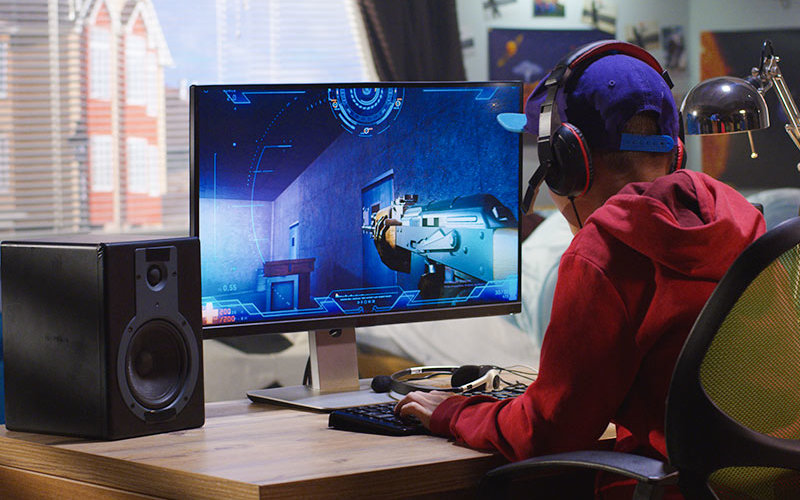
Concerns about the link between video gaming and gun violence may be overestimated, according to new research from Ofir Turel, professor of information systems and decision sciences at Cal State Fullerton.
Turel’s research found that American adolescents ages 13-17, who game at low to moderate levels (a few minutes to 2.8 hours per day), are less likely to bring guns to school, compared to those who do not play video games. Presumably, lower levels of gaming can instead help protect adolescents by keeping them occupied with games rather than obtaining guns.
“There has been an ongoing and unresolved debate on the potential role of video games in driving aggressive, including gun-related behaviors,” said Turel. “I sought to take a different look at the issue, by taking a balanced view, and pointing to the preventative role of games, in addition to their (small) potential to be associated with aggressive behaviors.”
His theory proposed that video gaming and bringing a gun to school have a U-shaped association rather than a linear one. Previous research theorized that the more time spent playing video games, the more gun-related behaviors a person would exhibit, and vice versa, but results were inconsistent.
Using secondary data from 2012-17 national surveys of eighth- and 10th-grade students collected during class time at middle and high schools, he divided the sample of 51,322 students into two three-year sets (2012-14 and 2015-17) and performed statistical analyses on both for replication and validation purposes.
While Turel’s findings suggest that the protective effect of gaming wears off at much higher levels of gaming (over five hours a day) and may then be associated with having aggressive, gun-related behavior, further research is needed to solidify this relationship.
He hopes that “… others study video games and aggressive behaviors in both experimental and natural settings and manage a control for many social and personal factors beyond the ones I used in my study, such that we eventually get a better understanding of if and how video games might relate to offline aggressions.”
Read Turel’s research in “Videogames and Guns in Adolescents: Preliminary Tests of a Bipartite Association,” recently published in the journal Computers in Human Behavior.

Both data sets above show the “U”-shaped relationship Turel hypothesized, suggesting gaming has a protective effect on those playing less than five hours a day relative to those who don’t game at all.
Contact: Karen Lindell, klindell@fullerton.edu